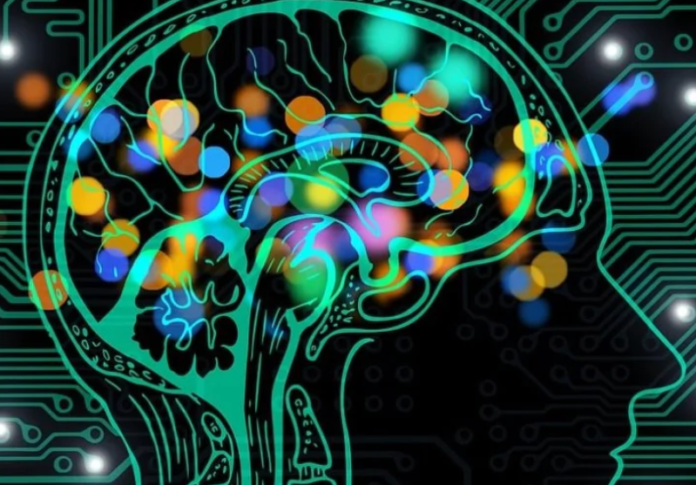In order to be competitive in the artificial intelligence era, special education is required, writes expert Brent Orrel in a column for American Enterprise Institute. The skills will require the maximum flexibility from the person.
After decades of industrial robots, factories and outsourcing, automation has finally come to the office. The recent article of the Wall Street Journal has shown how new "works for the mind" - complex algorithms and language models of generative artificial intelligence - create increasing uncertainty in the professional class.
In the past, automation, as a rule, worked more workers, especially those who work in the production sector. However, numerous recent studies have shown that a generative AI with his focus on language tasks means that part of the work performed by people who earn a living in words (whether writing, or programming, or coordinating actions) can take over the AI, which helps them to perform some tasks.
However, one of the sii mystery is that, unlike the previous stages of automation, workers with higher education and skills are often more vulnerable than people with lower knowledge and training. This does not necessarily mean that the value of low -skilled work is increasing, but rather that the skills of higher level are "democratized", which enables employees to perform more difficult tasks and work with less years of expensive education and training.
The Wall Street Journal article documentation of recent release related to the introduction of generative artificial intelligence. Despite the fact that the total number of lost jobs in absolute terms remains low, it emphasizes the level of concern among workers who are increasingly considering their work potentially prone to risk.
Young workers are most concerned: 65 percent of millennials and 72 percent of the Generation Z representatives reported that they are somehow extremely concerned about making their work unnecessary or that it will be automated. But the older generation workers are also concerned - more than half of the generation X and as many as 40 percent of the Bouse.
Anxiety is natural and even justified, but we need to be aware that workers are not so gloomy for workers.
According to Wyman authors, the implementation of the AI is not a smooth and linear process. Theoretically, AI can be a lot, but in order to significantly increase the productivity of the enterprise must rethink and restructure their business processes, which is a difficult and expensive task in many aspects. Businesses will have to make difficult decisions on whether it is necessary to implement AI and how to do it, taking into account factors such as capital investments, burdensome methods of trial and error, alternative costs, as well as the time and money spent on retraining of employees. Today's ubiquitous Internet economy has not appeared immediately. We took four decades to achieve what we have and 20 years before we have achieved a significant increase in productivity.
The parameters for AI and jobs are twofold. First, the consequences over time will be significant; And, secondly, what these effects will manifest are very uncertain. For every position that predicts the risks of "replacement" and losses of jobs, another involves the creation and "increase" of jobs - the tendency of technology to help people and increase their productivity, not simply replace human work. (This is reminiscent of an old joke about what happened if we made up all the economists at the end. Answer: Nothing, because they will never come to the conclusion).
How can we prepare for the future, given this uncertainty? The answer is simple but not easy. According to President Dwight Eisenhower, "plans are in vain, but planning is needed." He was in mind that plans are fragile and rarely withstanding a collision with reality. (Conveying the same idea is somewhat more concise, boxer Mike Tyson said: "Everyone has a plan until it is beaten by the muzzle.") On the other hand, planning develops self -knowledge, flexibility and ability to adapt to changing circumstances.
In the context of work and career, uncertainty can take more attention and invest in a wide range of skills that give employees diversified "portfolio" abilities. When technology suddenly displaces the cherished, highly developed skill, the employee has cognitive flexibility, confidence, subject experience and social competencies necessary for adaptation and, if necessary, rethinking.
The basis of the skills portfolio should not be cognitive or soft skills, such as flexibility, time management, teamwork and communication. Together, these skills are necessary for learning and allow employees to learn and apply new knowledge in real time. A recent IBM survey among 3000 top executives in 28 countries has shown that in the last seven years the soft skills cluster has climbed the top of the list of "critical skills", while the level of STEM ("Science, Technology, Engineering, Mathematics" - F.) , as well as the basic skills of working with computer and computer.
This is an important market signal. We should pay attention to that.
It is extremely important not to leave the background uncertainty when tracking recent events in the field of artificial intelligence and employment. Liberation is a fact of life in a market economy, and the loss of jobs among some highly skilled workers does not mean that the student should leave his or her specialty because he has stopped being "safe".
The reality was, and so it was for some time that there is nothing "safe" until the wind blows. The best solution is to start planning to be flexible.


